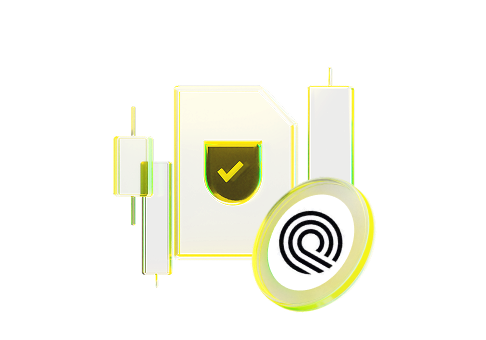What Is Ondo Finance and How Does It Work
Ondo Finance is a blockchain technology company that tokenizes real-world assets like U.S. Treasury bonds and now publicly traded securities. The platform creates digital versions of traditional financial products and makes them available on the blockchain. This process allows investors to access institutional-grade investments that were previously limited to large financial institutions.
The company operates through two main divisions. The Asset Management arm creates and manages tokenized financial products. The Technology division builds the protocols and infrastructure that support these products. Together, these divisions cover the entire process from asset creation to trading.
Founded in 2021, Ondo Finance entered the market when interest in Real-World Asset (RWA) tokenization was just beginning to grow. The timing proved strategic as major financial institutions started recognizing blockchain's potential for transforming traditional finance. BlackRock CEO Larry Fink even called tokenization the "next evolution of the market."
Review ONDO's Market Performance on LBank
ONDO() Price
The current price of ONDO() is $0, with a % change in the past 24 hours and a % change over the Past Six Months period. For more details, please check the ONDO price now.
The Evolution of RWA Tokenization
Real-world asset tokenization started with simple assets like gold and real estate. Now it encompasses complex financial instruments including bonds, stocks, and ETFs. The technology transforms physical and financial assets into digital tokens that live on blockchains. Each token represents ownership or a claim to the underlying asset.
The benefits extend beyond simple digitization. Tokenized assets can trade 24/7, unlike traditional markets that close on weekends and holidays. Settlement happens in minutes instead of days. Fractional ownership becomes possible for expensive assets. Smart contracts automate compliance and distribution of dividends or interest payments.
The market for tokenized U.S. government bonds grew from $114 million to $845 million in 2023 alone. Industry experts project the overall asset tokenization market will reach $10 trillion by 2030. This growth attracts both startups and established financial institutions to the space.
Ondo's Expansion Into Tokenized Stocks and ETFs
In September 2025, Ondo Finance announced its expansion beyond Treasury products into tokenized U.S. stocks and ETFs through Ondo Global Markets (GM). This platform marks a significant leap from government bonds to equity markets. The initial rollout targets non-U.S. individual and institutional investors who face barriers accessing American equity markets.
The platform offers tokenized versions of popular stocks and ETFs. Initial offerings include major technology companies, the S&P 500 index fund (SPY), and the Invesco QQQ Trust. These tokenized securities trade on blockchain infrastructure while maintaining regulatory compliance through careful structuring.
Ondo GM addresses several pain points for international investors. Many countries lack direct access to U.S. equity markets. Time zone differences create trading challenges. Currency conversion adds costs and complexity. Tokenization solves these issues by enabling round-the-clock trading and simplified access through blockchain wallets.
Nathan Allman, Ondo's founder, described the launch as bringing "thousands of stocks and ETFs onchain." The platform represents Ondo's vision of creating "Wall Street 2.0" where traditional securities seamlessly integrate with blockchain technology.
Market Growth and Adoption Metrics
Ondo Finance captured a significant portion of the growing RWA market. The platform's Total Value Locked (TVL) jumped from $40 million to over $534 million in 2024. By mid-September 2025, it reached $1.6 billion. This growth positioned Ondo as the second-largest player in tokenized U.S. Treasuries with approximately 17% market share.
The tokenized securities market shows similar explosive growth potential. Traditional securities markets contain hundreds of trillions in value. Even capturing a small percentage represents massive opportunity. Early movers like Ondo position themselves to benefit from this transition.
Adoption spreads across different investor types. Institutional investors seek efficiency and cost savings. Retail investors want access to previously unavailable assets. International investors need easier pathways to U.S. markets. Each group finds value in tokenized securities for different reasons.
Key Products Offered by Ondo Finance
OUSG vs USDY: Product Comparison

Infrastructure and Protocol Products
Ondo Finance developed several infrastructure products to support its ecosystem:
- Flux Finance: A decentralized lending protocol based on Compound V2 that allows whitelisted users to supply RWAs as collateral
- Ondo Global Markets: Now live with tokenized stocks and ETFs for non-U.S. investors
- Ondo Chain: A proposed Layer 1 blockchain designed specifically for institutional-grade RWA trading
The Team Behind Ondo Finance
The founding team brings extensive experience from traditional finance. CEO Nathan Allman and President Justin Schmidt both worked at Goldman Sachs in the digital assets division. Their Wall Street background provides crucial understanding of institutional requirements and regulatory compliance.
Other key team members include Katie Wheeler from BlackRock and Chief Strategy Officer Ian De Bode, a former McKinsey partner. This combination of traditional finance and consulting expertise positions Ondo to bridge the gap between TradFi and DeFi effectively.
In September 2025, Ondo appointed Peter Curley as Head of Global Regulatory Affairs and Global Head of Compliance. Curley brings decades of experience from the U.S. Securities and Exchange Commission (SEC), the U.S. Department of the Treasury, and Coinbase. The company also added former House Financial Services Committee Chair Patrick McHenry to its advisory board. These appointments strengthen Ondo's ability to navigate complex regulatory environments.
How Tokenized Securities Work on Blockchain
Tokenized securities represent traditional stocks and bonds as digital tokens on blockchains. The process involves several steps. First, a custodian holds the actual securities in a traditional brokerage account. Next, the platform issues tokens that represent claims to those securities. Smart contracts manage the relationship between tokens and underlying assets.
The technology enables new capabilities for traditional securities. Programmable compliance ensures only authorized investors can trade certain assets. Automated corporate actions distribute dividends without manual intervention. Atomic swaps allow instant exchange between different tokenized assets. These features reduce costs and increase efficiency compared to traditional systems.
Security remains paramount in tokenized systems. Multi-signature wallets protect custody of assets. Regular audits verify that tokens match underlying holdings. Blockchain transparency allows anyone to verify the total supply of tokens. These measures build trust in the tokenization process.
ONDO Token Economics and Distribution
The ONDO token has a maximum supply of 10 billion tokens. Currently, about 1.44 billion ONDO circulates in the market, representing 14.27% of total supply. This relatively low circulation percentage creates potential for future dilution.
The token primarily functions as a governance token for the Ondo DAO. Token holders can vote on proposals affecting the Flux Finance protocol. However, the token lacks clear value capture mechanisms like fee sharing or buyback programs.
Token Unlock Schedule Timeline
These large unlocks create significant potential sell pressure and could impact token price stability.
Monthly Unlocks
Monthly unlocks of 1.67 million ONDO
First Major Unlock
1.94 billion ONDO (19.4% of supply)
Second Major Unlock
1.94 billion ONDO
Third Major Unlock
1.94 billion ONDO
Final Major Unlock
1.94 billion ONDO
Market Performance and Price Analysis
ONDO token demonstrated exceptional growth since launching in early 2024. The token surged 480% from its historical lows and reached an all-time high of $2.14 in December 2024. By early 2025, ONDO secured a position among the top 50 cryptocurrencies with a market cap of $2.91 billion.
Trading activity increased significantly alongside price appreciation. Open interest in ONDO futures rose 14% to $585 million. Futures trading volume grew 67% to $1.38 billion in just 24 hours during peak activity periods. This derivatives activity indicates strong speculative interest in the project.
Technical analysts identify $1.13 as a key resistance level. Breaking above this price could push ONDO toward its all-time high. Some analysts project prices above $3.15 if the RWA market grows as expected. The launch of tokenized stocks and ETFs could serve as a catalyst for further price appreciation.
Competitive Landscape in Tokenized Securities
The tokenized securities market attracts diverse competitors with different approaches:
- Securitize: Leads with 42% market share in tokenized Treasuries. Focuses on institutional clients and regulatory compliance.
- Backed Finance: Offers tokenized stocks in Europe through its bBASKET and bCSPX products. Already operational with regulatory approval.
- Centrifuge: Specializes in tokenizing real-world assets beyond securities, including invoices and real estate.
- Maple Finance: Concentrates on institutional lending with tokenized credit products.
Franklin Templeton: Traditional asset manager tokenizing its own money market fund directly.
Ondo differentiates itself through deeper DeFi integration and broader product range. The combination of Treasury products, yield-bearing stablecoins, and now stocks/ETFs creates a comprehensive ecosystem. This approach targets both institutional and retail users across multiple jurisdictions.
Regulatory Challenges and Compliance Strategy
Current Regulatory Environment
The global crypto regulatory landscape remains fragmented and uncertain. Different countries apply varying rules to tokenized securities and DeFi protocols. The United States particularly struggles with clear frameworks for RWA tokenization.
Ondo takes a proactive approach to compliance. The platform requires KYC and AML checks for all products. Geographic restrictions limit access based on local regulations. The initial focus on non-U.S. investors for equity products reflects careful regulatory positioning.
Building Regulatory Relationships
The company actively engages with regulators to shape policy discussions. Regular meetings with the SEC's Crypto Asset Working Group demonstrate this commitment. Hosting summits with CFTC commissioners and other policymakers builds crucial relationships.
Partnership with World Liberty Financial (WLFI), a crypto platform supported by the Trump family, adds another dimension to Ondo's regulatory strategy. These connections could prove valuable as the regulatory landscape evolves. The combination of technical expertise and political relationships positions Ondo to adapt quickly to regulatory changes.
Risks and Potential Challenges
Despite strong positioning, Ondo faces several significant risks that investors should carefully consider:
- Regulatory Uncertainty: Negative policy shifts could severely impact operations. Classification as public securities would require major operational changes.
- Centralization Concerns: The platform operates as a "fully permissioned" business with KYC requirements and qualified purchaser restrictions. This contradicts DeFi's permissionless ideals.
- Execution Risk: While Ondo GM launched, full functionality and thousands of securities aren't yet available. Delivery delays could impact investor confidence.
- Valuation Concerns: With a $3 billion market cap but under $10 million annual revenue, the P/E ratio exceeds 300x. This extreme multiple prices in massive future growth.
- Competition Risk: Traditional finance giants and crypto-native platforms both compete for market share. Success requires maintaining technological and regulatory advantages.
The Future of Asset Tokenization
Asset tokenization extends beyond current implementations. Future developments could include tokenized derivatives, structured products, and even entire portfolios. Cross-chain interoperability will enable seamless trading across different blockchains. Integration with traditional finance systems will blur lines between crypto and conventional markets.
Central banks explore tokenization for government bonds and currencies. Major exchanges investigate blockchain-based settlement systems. Investment banks develop tokenized investment products. These institutional movements validate the tokenization trend and accelerate adoption.
Technological advances will enhance tokenization capabilities. Zero-knowledge proofs could enable private yet compliant trading. Layer 2 solutions will reduce transaction costs. Improved oracle systems will strengthen the connection between tokens and real-world assets. These improvements make tokenization more practical for everyday use.
The Path Forward for Ondo Finance
Ondo Finance stands at a critical juncture in its development. The successful launch of tokenized stocks and ETFs demonstrates execution capability. Strong team credentials and strategic partnerships position it well for growth in an expanding market.
Success depends on several factors aligning properly. The platform must onboard thousands of securities as promised. Regulatory clarity must emerge to enable full-scale operations. Market adoption must validate the tokenization model. Competition must not overwhelm Ondo's market position.
The RWA tokenization trend appears set to continue growing. Major financial institutions increasingly recognize blockchain's potential. Ondo Finance positioned itself to capture this opportunity. The expansion into equity markets marks just the beginning of its ambitious vision to rebuild Wall Street on blockchain rails. Whether it can maintain momentum while navigating risks will determine its ultimate success in transforming how the world invests.

